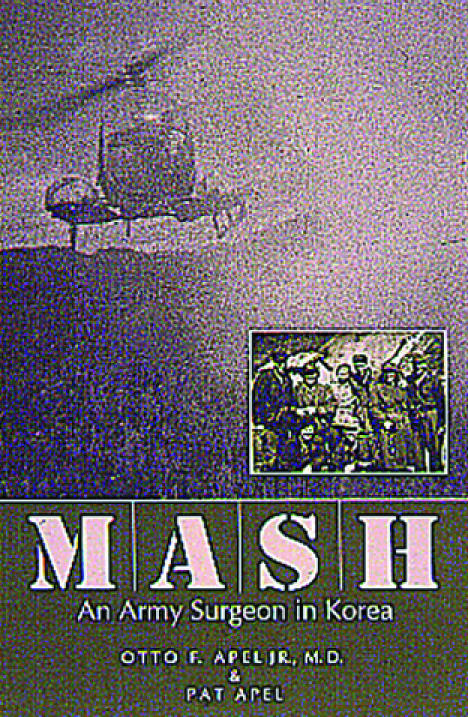Otto F Apel, Pat Apel
University Press of Kentucky, £23.75, pp 240 
ISBN 0 8131 2070 5
———————
Rating: ★★★
Few truly realise the damage that war can create. The media offer a fireside version of conflict, as if it is taking place in a distant land without any involvement by the observer. Real life is so different, as this book capably shows. MASH is written by a father and son duo. It is not a textbook, nor does it claim to be. It is, however, a well written description of one of the original MASH surgeons in the Korean war. You need to be neither doctor nor surgeon to enjoy it, as the book is written simply and clearly for all to understand.
Upwards of 100 surgical cases a week could pass through a MASH (mobile army surgical hospital), and the medical staff lived in primitive surroundings within earshot of the conflict. Dr Apel describes the scene of the surgeon at war so well, with feet swollen and sore after up to 80 hours of continuous operating. The reader is spared nothing, and at times I shared with the authors an understanding of the emotional effect medical work in a war zone can cause.
The narrow mindedness of the military hierarchy leaps out when Dr Apel first started to use vein grafts to salvage avascular limbs. In the Korean war such grafts were against army policy, and court martial for disobeying such a policy was not an idle threat.
The last fifth of the book slows down, but until then it had me gripped. Many of the episodes described by Dr Apel appeared in the successful television series M.A.S.H., albeit in more humorous form. It is a long time since I have enjoyed a book so much. It has opened my eyes to a war about which I knew little. I commend MASH to you most highly. You think the NHS is hard work? I suggest you read this to learn what surgical stress can be.


